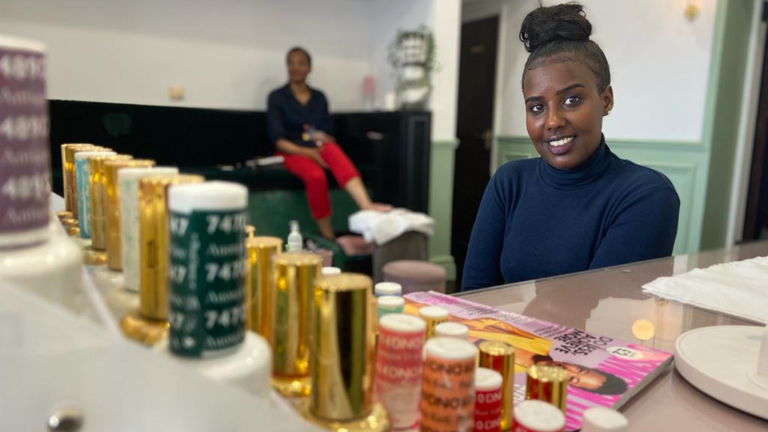A pilot scheme which helped 112 refugees with business start-up training has been extended.
Funded by the Home Office and the National Lottery Community Fund, the scheme supports refugees for a year, taking them from the idea stage to business launch.
After its success, three of the four bodies who delivered the workshops have secured a collective £1.7m to expand the pilot locations.
The Centre for Entrepreneurs, which oversaw the project, hopes to help a further 585 refugees over the course of the next 18 months.
Matt Smith, policy director at the centre, said: “We had 112 people who went through the programme, 25% of them launched during the pandemic and 40% were preparing to afterwards.”
AdvertisementThe Centre for Entrepreneurs says the pilot proves that tailored business support for refugees work, and is now calling for it to go further.
Mr Smith added: “What we now need is commitment and collaboration at a national level from businesses, banks, local authorities and the third sector to ensure that every interested refugee can access this vital support and start to rebuild their lives through entrepreneurship.”
More from UK COVID-19: ‘Great hope’ restrictions can end early on 5 July and UK not in third wave, says vaccine expert Shakur Pinnock: E-scooter rider dies in hospital – six days after being critically injured in collision with a car She’s found! ‘Guardian angel’ who saved man having a stroke in the street says there’s no need for thanks COVID-19: Revealed – How many people booked a vaccine on first day jabs became available to all over 18s Girl, aged six, dies after being hit by car while walking with her father in Stoke-on-Trent COVID-19: Travel restrictions are a ‘trade-off’ and holidays as normal this summer ‘was never going to be the case’, says justice secretary Image: Ms Salih travelled to the UK from EritreaNejat Salih is a 28-year-old refugee from Eritrea who benefited from the scheme.
She arrived in the UK in 2016 after a long and tumultuous journey – travelling through deserts in Sudan before finding safety in London.
Ms Salih said: “All I had was my talent and the will of wanting to do something.”
But talent alone wasn’t enough.
Like many refugees, Ms Salih found it difficult to get the support she needed to start her beauty business.
She said: “As a refugee, when I go and ask for a loan or an investment it is not easy.”
Ms Salih eventually received funding and support from the pilot and has been self-employed for over a year.
She said: “Having my own business here in the UK, It makes me feel like I belong, and I’m doing something.
“I am not just expecting, I am actually giving.”
Image: Ms Salih said having her own business in the UK makes her feel like she belongsSome 23% of refugees in the UK go on to become self-employed, according to research by the Centre on Migration, Policy and Society (COMPAS).
This compares to 15% of UK-born nationals.
Carlos Vargas-Silva, director of COMPAS, said this is because refugees often face discrimination when looking for work.
“It is more difficult to get a job as an employee for refugees,” says Mr Vargas-Silva, and because of this, they are more likely to be self-employed.
“Not as a first option, but just to adjust to this discrimination in the labour market.”
Refugees often arrive from places of conflict or war, and Mr Vargas-Silva says while the UK has a good record of receiving refugees, more needs to be done to support them when they get here.
He continued: “Once they are in this country, we want them to be successful because otherwise it will be costly for the government.
“We really want to be on their side and make it easy for them to join the labour market, make it easy for them to have better businesses.
“At the beginning it is a humanitarian decision, but at the end it is an economic decision for us to make them successful.”
